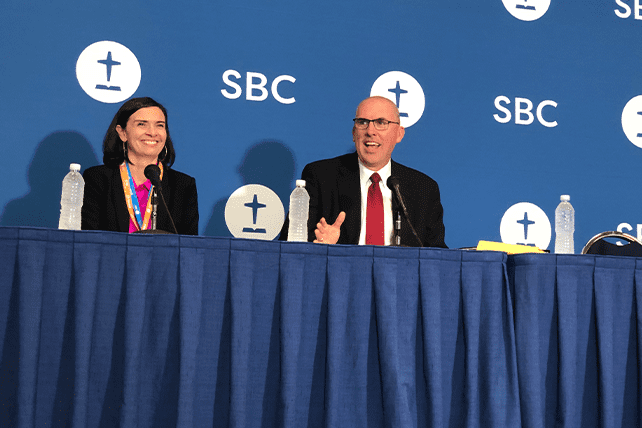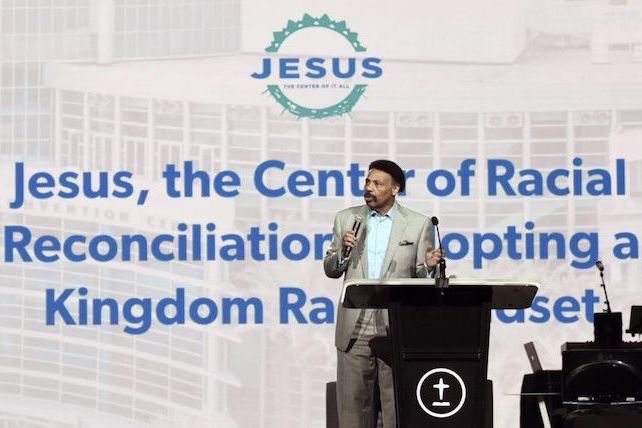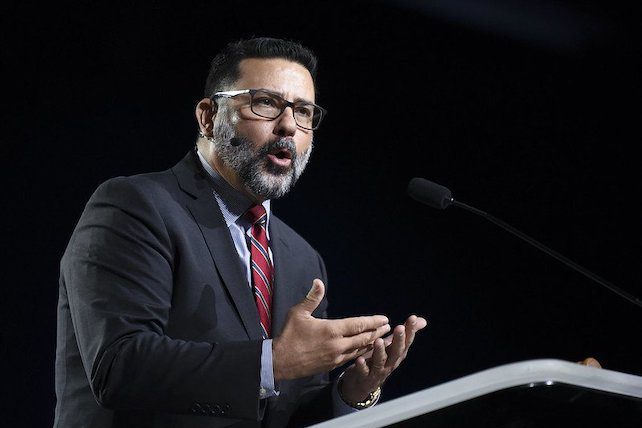ANAHEIM, Calif. (RNS) — A week before the Southern Baptist Convention’s annual meeting, when a massive report about its leaders’ mishandling of sexual abuse claims was already drawing attention, Executive Committee Chairman Rolland Slade was asked to read Scripture before a worship service at the start of the two-day gathering.
He chose Psalm 51, David’s song of lament after being caught in his abusive and immoral behavior.
“That’s David’s heart in that, his prayer to the Lord to clean him, to make him whiter than snow,” said Slade in a Wednesday (June 15) interview. “And that’s my heart’s desire for us as a convention, and as a network of churches.”
Over the course of several days, Slade, SBC President Ed Litton and the Southern Baptists who joined them apologized to abuse survivors, including some in attendance at the annual meeting and Monday’s Executive Committee plenary.
On his third-to-the-last day as committee chair and member, the California pastor oversaw the last procedural votes needed to support the recommendations of a sexual abuse task force that were adopted the next day, including the creation of an abuser-tracking “Ministry Check” website.
Slade, 63, who pastors a church in El Cajon, said he was grateful to close out his committee service at a point where there was more being said and done than apologies.

“It’s appropriate for us to apologize,” said the longtime leader of a small multiethnic congregation. “It’s also appropriate for us to be grateful for the opportunity that God’s given us to correct our behavior, to correct what we have done wrong, to make a wrong right.”
RELATED: Southern Baptists apologize to abuse survivors and urge criminalizing pastoral abuse
It was Slade who signed an updated letter of engagement — with “no hesitation whatsoever” — with Guidepost Solutions after a lengthy 2021 battle to permit the waiving of privilege. Sixteen members of the committee quit along with President and CEO Ronnie Floyd and its long-term general counsel, objecting to the decision that would mean records of conversations about legal matters between committee staff and board members would no longer be confidential.
Once the independent investigation was complete, Slade, like anyone else interested, read the resulting 288-page Guidepost report.
“I think the one thing that surprised me more than anything was the list,” said Slade of the revelation that — after years of leaders denying requests from survivors and supporters to keep track of convicted abusers — the committee had been keeping a secret list doing just that.
Looking back, Slade said, he thinks he didn’t ask the proper question about the possibility of such a list, especially since “I’d thought a database would make sense.”
Slade, the first Black chair of the Executive Committee, mentioned when he led his first meeting as chair that his perspective on abuse was “personal” because his wife of more than 40 years is a survivor.


























